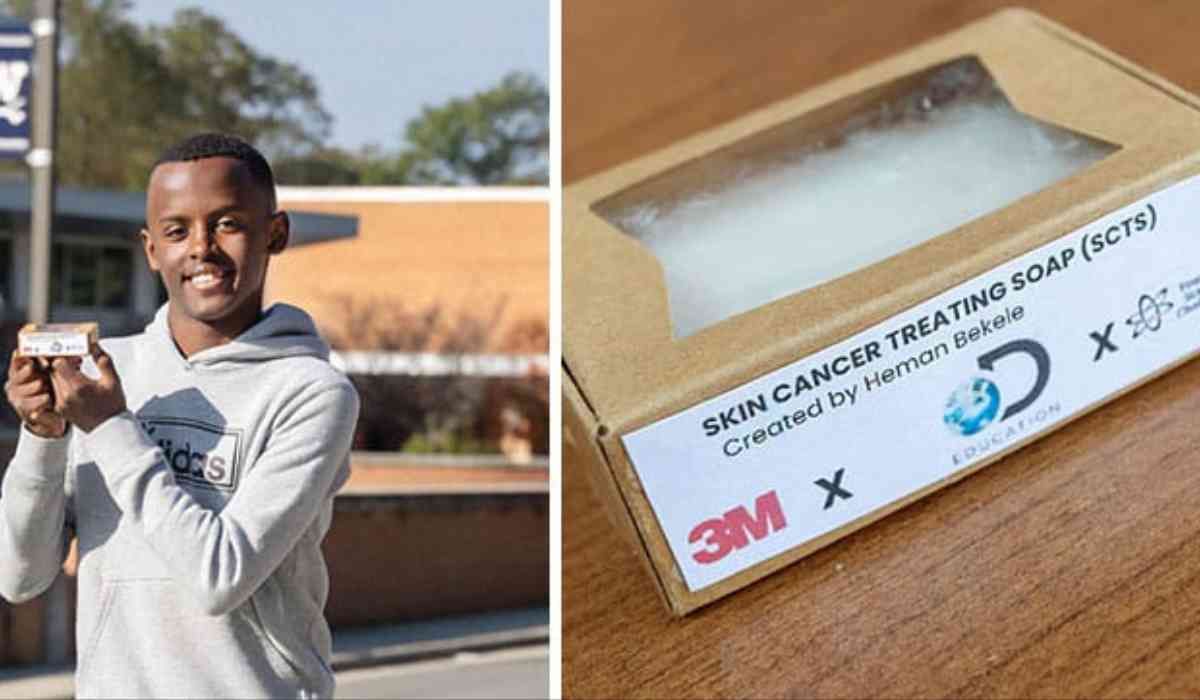A 14-year-old American boy named Heman Bekele who attends Frost Middle School in Fairfax County has created a soap that could potentially used to treat skin cancer. After competing against nine other individuals in the 2023 3M Young Scientists Challenge, he was named America's Top Young Scientist. According to a report in the Washington Post, he also took home the $25,000 top prize.
The student claimed that the less than $10 soap would have components that might potentially reactivate skin-protecting cells, giving them the power to fight cancer cells. "To see that all of the hard work paid off in the end, it was really a surreal experience," Heman told the news organization.
He stated that the inspiration hit him while he was living in Ethiopia and observed how people there were often working outside in the sun. He didn't pay much attention to it, but as the competition dates got closer, he thought back on his time there and chose to concentrate his research on skin cancer. He stated, "I wanted to make my idea something that not only was great in terms of science but also could be accessible to as many people as possible." Heman continued, saying that his product needs to be "most convenient and most trustworthy" in order for people to use it as frequently as possible and for it to become a "constant" in their lives.
Bekele expressed his desire to transform the soap into a “symbol of hope, accessibility and a world where skin cancer treatment is within reach for all” to the judging panel after taking home the prize.
After submitting his pitch video, Heman received notification in June that he had advanced to the finals of the 3M Young Scientist Challenge, ranking among the top ten. Along with Discovery Education, 3M, the challenge's host company, partnered each finalist with a mentor to help them construct and test a physical prototype of their winning concepts.
Deborah Isabelle, a 3M product engineering specialist who was Heman's mentor, claimed that upon meeting the teen for the first time, she immediately sensed his vigor and enthusiasm for the undertaking. According to her, Heman is "focused on improving the world for people he hasn't necessarily even met yet.
Heman and Isabelle met virtually once per week while he worked on the prototype and recorded his process, which was necessary for the competition. To build a prototype with a blend of molecules that could function, months of trial and error were required. Heman devised the recipe for the soap prototype he intended to display at the final competition using computer modeling.
The soap, named Skin Cancer Treating Soap (SCTS), functions by using a substance that aids in reviving dendritic cells, which are destroyed by cancer cells. The dendritic cells can then combat the cancer cells after being resurrected. According to Isabelle, it essentially reactivates the body's healing capacity.
The body is reminded how to defend itself by the Skin Cancer Treating Soap, She claimed.
The majority of skin cancer deaths are caused by melanoma, which accounts for only 1% of all cases of skin cancer but accounts for the majority of them, according to the American Cancer Society (ACA).
According to the society, melanoma rates have been steadily increasing over the past few decades, especially for women over 50. Additionally, white individuals are more likely than black people to get melanoma—by a factor of more than 20. The fatality rates of melanoma have decreased over the previous ten years as a result of treatment advancements.
Heman claimed that although similar lotions and ointments exist, he doesn't think soap has ever been used to treat skin malignancies in their early stages.
PIC SOURCE- X
© Copyright 2023. All Rights Reserved Powered by Vygr Media.



















